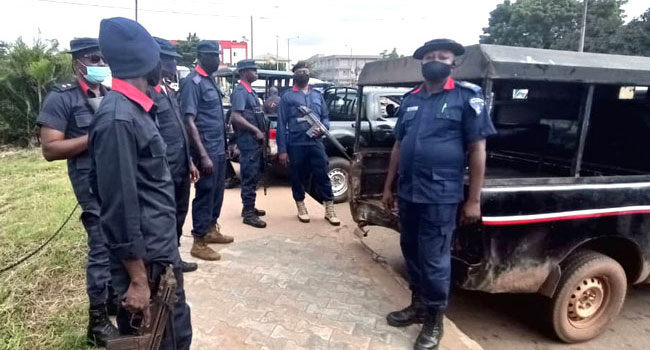The Nigeria Security and Civil Defence Corps (NSCDC) has announced the deployment of a specialized intelligence team to oversee and prevent the unlawful transportation and stockpiling of food items in Katsina State.
On Monday in Katsina, Mr. Jamilu Indabawa, the NSCDC Commandant in the state, revealed this information. He made the disclosure while welcoming Mr. Jabiru Tsauri, the chairman of the committee appointed by the state government to oversee the prices and transportation of grains within the state.
The News Agency of Nigeria (NAN) reported that Governor Dikko Radda inaugurated a 27-member joint task force on February 21 to monitor the pricing and illicit movement of food items in the state.
According to Indabawa, credible intelligence has already been obtained regarding the transportation and stockpiling of food items by various specialized teams that have been deployed.
“Our personnel at local government areas and border areas have already swung into action.
“I assure you of all necessary support, cooperation, and timely intelligence that will help to uncover these illegal dealings.”
The NSCDC commandant expressed appreciation to the state government for initiating measures to curb the hoarding of food items within the state.
In his earlier remarks, Tsauri, who also serves as the Chief of Staff to the Governor, praised the NSCDC for their extensive efforts throughout the state.
He disclosed that the task force was established to monitor food prices, combat grain hoarding, oversee the movement of food commodities, and address any activities that may result in price increases.
Tsauri emphasized that individuals engaged in illicit transactions involving food items, unjustified price hikes, or hoarding would be subject to legal consequences.
He also sought the support, cooperation, and collaboration of the NSCDC Katsina Command in carrying out their duties.
The committee comprises representatives from various security agencies, government bodies, civil society organizations, and other relevant stakeholders.



